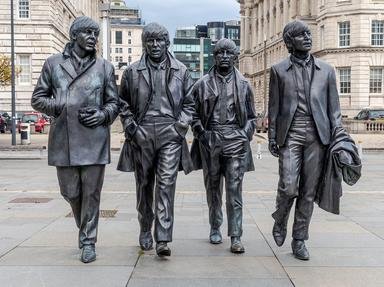
Which Fab Four Sang This? Trivia Quiz
Lead Singers of Beatles Songs
Each member of the Beatles got an opportunity to be the lead singer on a song on most albums, and they all had multiple writing credits. Can you recognize their voices on these iconic tracks? Which is your favourite?
A classification quiz
by LeoDaVinci.
Estimated time: 3 mins.